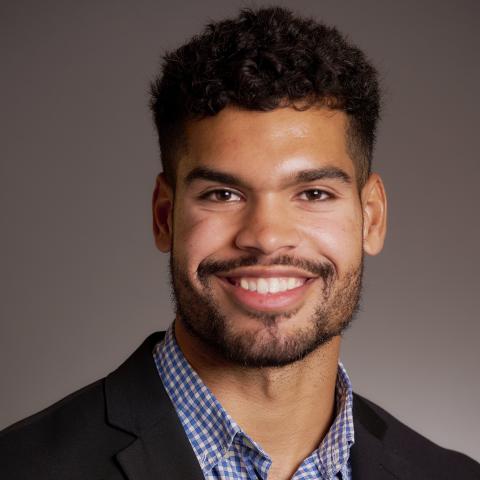Get your PhD or MA in educational psychology with a focus on psychological foundations in education!
In our graduate programs, students explore the psychological, cognitive, and social processes that shape learning and instruction. Students draw on multiple research methods from learning analytics, experimental psychology, the learning sciences, and community-engaged research, often centering emerging educational technologies (e.g., artificial intelligence, game-based learning), and engaging in close collaborations with teachers, students, educational leaders, and families.
In our PhD program, students develop deep expertise in an applied psychological topic (e.g., knowledge revision, productive failure, reading comprehension, writing, mind wandering, science argumentation, feedback) in close collaboration with faculty and with the purpose of developing new and actionable contributions to the fields of education, psychology, and the learning sciences.
In our versatile MA program, students pursue unique interests and career goals. Students in our MA program can focus on learning analytics, developing foundational techniques for working with large, process-based data sets, informed by theories of learning. MA students may also pursue community-engaged research by working with a cohort of peers and partnering with a community stakeholder (e.g., school district, not-for-profit organization) to undertake a shared research project. MA students may also specialize in an educational area (e.g., motivation, mathematics tutoring, game-based learning) and develop expertise in research methods central to their interests.
In all cases, students in our PhD and MA programs develop foundational quantitative and qualitative research skills, and contribute to designing and studying innovative, ethical, and effective educational spaces.
Find your path
Graduate
Learning and cognition / educational technology (MA, PhD)
Study how people think and learn. Research how people learn with technology and design research-based technologies to improve learning.
Careers
- Faculty (PhD only)
- Research associates at universities
- Research scientists at companies
- Researchers in:
- Government agencies
- Research and development centers
- Other educational settings (e.g., K-12 school research offices)
Learning sciences postbaccalaureate certificate
Shape your teaching and research through better understanding of how people learn. As a student in our new learning sciences certificate program, you’ll study learning theories, methodologies, designs, and evidence-based practices central to teaching and conducting research that supports the learning process.
Minor
The Department of Educational Psychology offers a minor in educational psychology with an emphasis in psychological foundations of education.
Program requirements
E
Visit our student intranet online to find psychological foundations of education's mission, objectives, handbooks, and more.
Application information
Submit your MA or PhD application for the fall semester following the deadlines below.
December 1
PhD applications
We will not be accepting applications for the Social area PhD at this time.
February 1
MA applications
Tuition
Visit the College of Education and Human Development's Finance and Funding page for information on tuition.
Fellowships and awards
Submit your application materials by the December 1 deadline, and you’ll automatically be considered for Graduate School fellowships and departmental awards based on scholastic achievement. Notification of awards will be sent in March.
Graduate assistantships
Get paid to work as a teaching assistant, graduate instructor or research assistant. Graduate assistantships are available through the department, College of Education and Human Development, and the University.
Note: Applicants who complete their applications by the March 1 deadline will be less likely to receive graduate assistantships than students who meet the December 1 deadline.
Additional funding
Visit the College of Education and Human Development's Finance and Funding page for more information on funding.
Financial aid
Visit OneStop Student Services for more information on available financial aid.
View information session on psychological foundations of education here.
Labs
Research lab: Keisha Varma
Keisha Varma is the lab director.
Research lab: Geoffrey Maruyama
Reading + Learning Lab
Panayiota (Pani) Kendeou is the lab director.
Thinking Skills Lab
William Bart is the lab director.
Research lab: Martin Van Boekel
Martin Van Boekel is the lab director.
Students publications
Hwang, H., Son, Y., Relyea, J.E., Jeon, H., (2025). Bidirectional relations of reading with social studies and science domain knowledge among Korean students. Reading and Writing: An Interdisciplinary Journal. https://doi-org.ezp1.lib.umn.edu/10.1007/s11145-025-10670-8
Hwang, H., Choi, S., Guha, M., McMaster, K., Harsch, R., & Kendeou, P. (2024). Indirect and direct contributions of executive functions to reading comprehension. Journal of Experimental Child Psychology, 243, 105925. https://doi.org/10.1016/j.jecp.2024.
Goeke, M., DeLiema, D., Bye, J. K., Carpenter, Z., Marupudi, V., & Wilson Vazquez, A. (in press). From interaction analysis to pedagogy: Boundary crossing through intertwined approaches to video-based sensemaking. International Journal of Research & Method in Education.
Lisinker, R., DeLiema, D., Scharber, C., Chen, B., & Voigt, M. (2025). “Is there anyone in this room who wouldn’t be counted?” Pedagogy at the intersection of history, data literacy, and justice. In Rajala, A., Cortez, A., Hofmann, H., Jornet, A., Lotz-Sisitka, H., & Markauskaite, L. (Eds.), Proceedings of the 19th International Conference of the Learning Sciences - ICLS 2025 (pp. 998-1006). International Society of the Learning Sciences.
Fulsher, A., Pagkratidou, M., & Kendeou, P. (2025). GenAI and Misinformation in Education: A Systematic Scoping Review of Opportunities and Challenges. AI & Society. https://doi.org/10.1007/s00146-025-02536-y
Johnson, V., Butterfuss, R., Harsch, R., & Kendeou, P. (2025). Patterns of belief and trust in climate change information. Journal of Research in Science Teaching, 62 (3), 655-683. https://doi.org/10.1002/tea.21967
Troy, A., Christianti, D., Weisen, S., Hunter, I., & Van Boekel, M. (2025). A cross-cultural examination of elementary students’ perceptions of academic feedback. British Educational Research Journal.
Research projects
Playful problem solving
Play is an exceptionally generative context for learning. Play is also a context where you push your boundaries and get stuck. In these moments, players often experience impasses and the need to problem solve as fundamental, even essential parts of the play process. Because learning to problem-solve requires working through impasses, there are substantial benefits that play can provide when it comes to lowering the cost of failure and fostering exploration and iteration. Building on these threads, our team of researchers is studying the genre of puzzle games, in particular Baba Is You, through video-based research methods (e.g., players thinking aloud while puzzle solving) and multimodal learning analytics (e.g., studying patterns in how often players restart levels, bump into walls). We are exploring how players solve problems at impasses, express confidence during play, learn the game through different types of onboarding, and receive scaffolding from experts when they get stuck. For a summary of some of these findings, check out this recording of a research talk we gave at ThinkyCon in 2024. In upcoming threads of this work, we are exploring how different types of onboarding – easier initial levels, levels with good hints, hard initial levels – impact players’ long-term success in the game. We are also interviewing a wide range of developers who build puzzle-based video games and aiming to understand the creative, effective ways they design their games to support players’ learning.
Knowledge and misinformation revision
Digital spaces are exceptionally fertile ground for misinformation spread. They are also contexts where people encounter conflicting information and must navigate complex credibility judgments. In these moments, individuals often need to revise their knowledge. Because learning to discern accurate information requires working through misconceptions, there are substantial benefits that effective correction strategies can provide when it comes to lowering the psychological costs of belief revision and fostering critical evaluation of information sources. Building on these threads, our team is studying knowledge revision processes, particularly through the lens of the Knowledge Revision Components (KReC) framework, using both controlled experimental methods (e.g., measuring misconception reactivation during reading) and applied intervention research (e.g., studying patterns in how people respond to corrections on social media). We are exploring how people revise misconceptions when encountering refutation texts, process corrections from different credibility sources, integrate information across multiple corrective messages, and maintain revised knowledge over time. We are also exploring how AI-mediated interactions can influence knowledge revision and learning.
People
Faculty and staff
Faculty are listed in alphabetical order by last name
Laura Allen
Bonnie Westby Huebner Chair in Education and Technology
William M. Bart
Professor
David DeLiema
Program coordinator, psychological foundations of education
Assistant professor
Hyejin Hwang
Assistant professor
Panayiota (Pani) Kendeou
Distinguished McKnight University Professor, Guy Bond Chair in Reading
Caitlin Mills
Program coordinator, assistant professor
Martin Van Boekel
Teaching assistant professor
Keisha Varma
Associate professor, associate vice provost, Office of Equity and Diversity
Current students
Alumni
- Ashley Hufnagle, PhD (Assistant Professor at St. Catherine University)
- Jesslyn Valerie, PhD (Research and Evaluation Analyst at The Children’s Trust of Miami-Dade County)
- Miguel Ovies-Bocanegra, MA (PhD student at Northwestern University)
- Craig Anderson, Postdoctoral Researcher (Assistant Professor at University of Utah)
- Victoria Johnson, PhD, Postdoctoral Associate (University of Miami)
- Jasmine Kim, PhD, Research Analyst (OECD, Paris)
- Gregory Trevors (Associate Professor, University of South Carolina)
- Reese Butterfuss, PhD (Psychometrician, Certiverse)
- Kelsey Will, PhD (Researcher, University of Minnesota)






